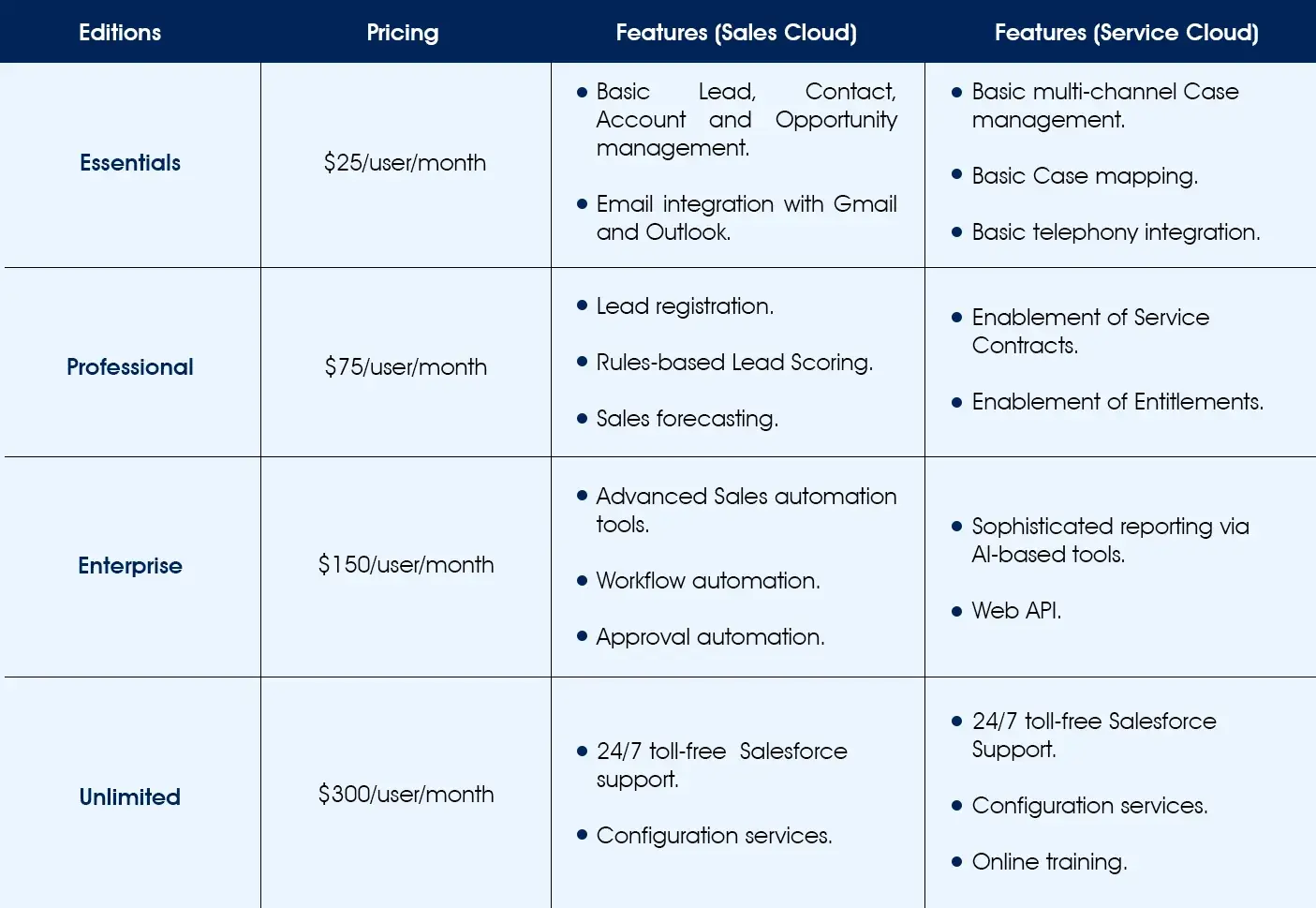
Free Business Case Study
How Did Salesforce Sales Cloud & CPQ Spark A Revolution In Media & Communication Excellence?
Salesforce
Salesforce Development Salesforce Implementation Salesforce Integration AppExchange App Development Salesforce Consulting Hire a Salesforce Developer Salesforce Managed Services Salesforce Data and AIServiceNow
ServiceNow Consulting ServicesServiceNow Implementation ServicesServiceNow Managed ServicesDownload E-Guide

Download E-Guide
Register to read the complete guide as PDF on your email.
Download Customer Success Story

Download Customer Success Story
Submit your details below to get a detailed success story delivered to your inbox as a PDF.
Download Case Study

Download Case Study
Register to read the complete solution and benefits of this Case Study as a PDF on your email.
Download Whitepaper

Download Whitepaper
Register to Get the Whitepaper Delivered Straight to Your Email.
Download Industry Report

Download Industry Report
Register to Get the Industry Report Delivered Straight to Your Email.
Table of Contents
CRM (Customer Relationship Management) has already become unavoidable in keeping the business well-organized and flourishing. When you have already onboarded Salesforce as your prime Customer Relationship Management software, it will bring many fringe benefits to your business through its two prime products: Sales Cloud and Service Cloud.
Though these two clouds share generic similarities, what makes them different is their functional and distinctive features. Salesforce Sales Cloud and Salesforce Service Cloud are highly capable of handling different business issues. Things will start tangling when the decision-making time comes. Getting a solution with all the essential features is as important as maintaining the budget.
To help you identify which cloud is best for your business needs, we have this comparison guide for you – Salesforce Sales Cloud vs Salesforce Service Cloud.

Though, they both serve different purposes yet, there are some genetic differences based on different factors:
| Basis of Difference | Salesforce Sales Cloud | Salesforce Service Cloud |
| Function | Sales Cloud boosts the process of Sales in an organization and maintains various affected parties such as leads, contacts, accounts, customers, quotes, etc. | Service Cloud assists businesses in streamlining and optimizing customer support and services. Important key factors are accounts, contacts, cases, call center, public knowledge base, etc.. |
| Purpose | Its main purpose is to guide the sales team in nurturing leads in a better way and improving the sales numbers. | Its prime objective is to effectively and efficiently deal with the client’s request and provide the required services. |
| Who are the users? | Salesforce Sales Cloud is specially designed for the Sales team, including Sales Managers and Sales representatives. | Salesforce Service Cloud is designed for the Service & Support team that comprises Client Service Managers, Service Agents, or Support Representatives. |
| Tool for Customer Management | Sales Cloud manages prospects and customer-related information with Lead Management and Account & Contact Management. | Service Cloud takes care of all essential customer data on Service Console. It offers a comprehensive view of client & Account information, every raised case, its history, and present status on a single screen. |
| Channel of Interaction | Sales Cloud only offers Email support for establishing and maintaining communication with Leads and Customers. | Service Cloud has Customer Service that integrates all social media platforms and enables support representatives to answer customer queries from one place. Further, the mode of interaction is extended in the form of Chat Services, Phone calls, and Self-Service communities. |
| Analytics | Reports & Dashboards are there to provide Sales reps with real-time progress they are making in their sales process. Also, this feature shows at which specific point they are lagging and what steps they can take to improve it. | Service Analytics provides Service Managers with a holistic view of both KPIs (Key Performance Indicators) for deployed Service Agents. Managers can access customer data, including history, trends, and comparisons to peers. |
| Automation | Users can implement automation in Sales Cloud and create a point-to-click interface in business processes like building automated workflows and alerts for several deals. The system keeps auto-assigning you with tasks as you progress in the deal. | Service Process Automation helps Service Managers automate email notifications, auto-field updates, and case assignments through Process Builder, Apex Triggers, and Workflow rules. This collaborates in increasing productivity and decreases the scope of errors. |


The pricing of Salesforce Sales Cloud and Salesforce Service Cloud is similar, but what differentiates them is the features each of them is getting along with.

If your business has a full-fledged Sales and Dedicated Customer Support & Service Department, then Salesforce Sales + Service Cloud Package will be your best investment solution. It might seem a little expensive, but just by paying $25 extra for each user license, you can power up your business with Sales and Service Cloud’s features.

This solution, which brings everything together, maybe a good choice for companies that prioritize consistency in their operations and want to use a single database for sales and customer service.
Whether you need Salesforce Sales Cloud, Salesforce Service Cloud, or both, depends on the specific needs of your business.
If your main focus is on sales, Salesforce Sales Cloud may be the better option for you. It is designed to help sales teams track leads, opportunities, and customer interactions, automate sales processes, manage leads and opportunities, forecast sales, and gain visibility into sales performance.
If your main focus is customer service and support, Salesforce Service Cloud may be your better option. It is designed to help customer service, and support teams manage and track customer inquiries, cases, and interactions, automate service processes, and gain visibility into customer service performance.
However, if you want a complete customer-centric experience across the entire customer journey, it’s better to use both Salesforce Sales Cloud and Salesforce Service Cloud. This integration allows sales and customer service teams to access the same customer information and history, enabling them to work together more efficiently. Salesforce offers a bundle called Salesforce Sales+Service Cloud that includes both Sales Cloud and Service Cloud so that you can use both products in one package.


How Did Salesforce Sales Cloud & CPQ Spark A Revolution In Media & Communication Excellence?
Lead Conversion With Personalization
Approvals got speed; Not days but hours
Quick Quotation and Invoice Generation
In conclusion, Salesforce Sales Cloud and Salesforce Service Cloud are powerful CRM platforms designed to help businesses manage and track customer interactions and data throughout the customer lifecycle. Salesforce Sales Cloud is primarily geared towards managing the sales process, while Salesforce Service Cloud is geared towards managing customer service and support.
Both products can be integrated to provide a customer-centric experience across the entire customer journey. Regardless of the size and model of the business, organizations can always rely on Salesforce’s Customer Relationship Management system for driving high-quality sales and industry-grade customer services.
When selecting the ideal cloud solution for your business, collaborating with a certified Salesforce Partner like Cyntexa ensures success. With a team of Salesforce implementation experts, Cyntexa specializes in delivering seamless projects using Sales Cloud and Service Cloud, tailored to meet your unique business needs.
We’ve helped businesses like yours to boost revenue, streamline operations, and enhance customer service. Let us guide you through the entire implementation process, ensuring your Salesforce solution is tailored to meet your specific needs. Ready to transform your business? Contact us today to get started!
Don’t Worry, We Got You Covered!
Get The Expert curated eGuide straight to your inbox and get going with the Salesforce Excellence.
AUTHOR
ServiceNow, Sales Cloud
Shruti is a ServiceNow Consultant with 5+ years of experience across ServiceNow ITSM, AWS, Salesforce Loyalty Management, and managed services. She blends technical expertise with strategic insights to deliver transformative IT services and CRM solutions that enhance efficiency and customer satisfaction.


Join Our Newsletter. Get Your Daily Dose Of Search Know-How
Salesforce Sales Cloud focuses on the sales process, while Salesforce Service Cloud focuses on customer service and support. Sales Cloud is geared towards managing leads, opportunities, and sales forecasts, whereas Service Cloud is geared towards managing customer inquiries and cases.
Yes, Salesforce Sales Cloud and Salesforce Service Cloud can be integrated to provide a complete customer-centric experience across the entire customer journey. This integration allows sales and customer service teams to access the same customer information and history, enabling them to work together more efficiently.
It depends on the specific needs of your business. Salesforce Sales Cloud may be the better option if your main focus is on sales. If your main focus is on customer service and support, Salesforce Service Cloud may be the better option. Additionally, you can use both also.
Salesforce Sales Cloud and Salesforce Service Cloud are separate products. However, they can be integrated to provide a customer-centric experience across the customer journey. Salesforce offers a bundle called Salesforce Sales+Service Cloud that includes both Sales Cloud and Service Cloud so that you can use both products in one package. With this bundle, sales and customer service teams can access the same customer information and history, enabling them to work together more efficiently.
Become a next-gen business with us.
Tell us about your idea and we’ll bring it to life. Schedule a FREE consultation today.
Looking for a new career?
View job openings
By submitting, you consent to Cyntexa processing your information in accordance with our Privacy Policy . We take your privacy seriously; opt out of email updates at any time.
This site is protected by reCAPTCHA and the Google Privacy Policy and Terms of Service apply.
Looking for a new career?
View job openings